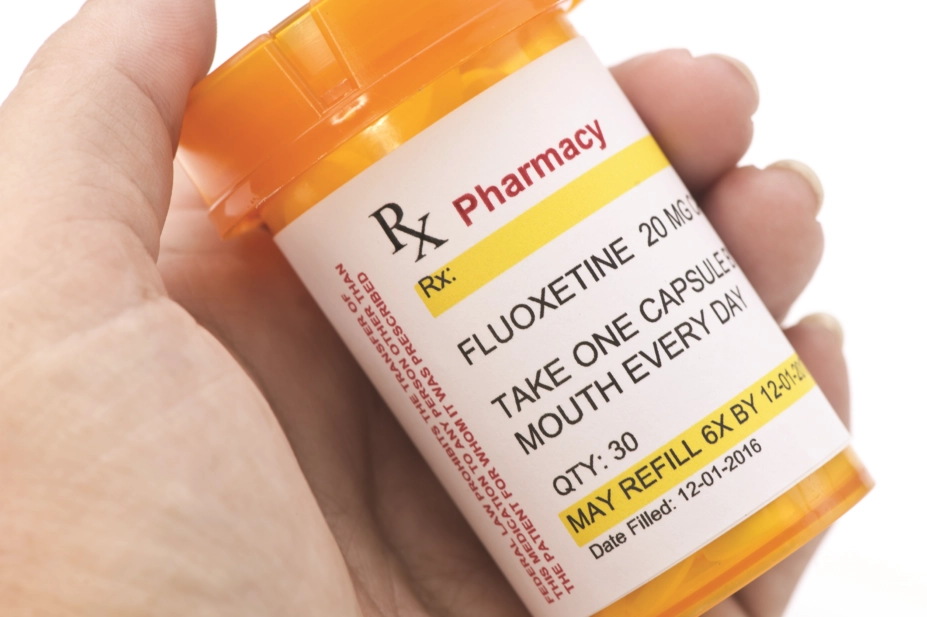
Shutterstock.com

Source: RPS
David Taylor, professor of psychopharmacology at King’s College, London, said the study gave “valuable insights into the small differences between drugs and the large difference between drugs and placebo”.
Antidepressants are more effective than placebo for the acute treatment of adults with unipolar major depressive disorder, according to a new study published in The Lancet (online, 21 February 2018)[1]
.
Researchers performed a meta-analysis of 522 double-blind, randomised controlled trials, comprising 116,477 patients randomly assigned to 21 antidepressant drugs and placebo. The analysis included both placebo-controlled and head-to-head trials as well as unpublished data.
The researchers found that all antidepressants included in the analysis were more efficacious than placebo in adults with major depressive disorder.
Some of the antidepressants, including escitalopram, mirtazapine, paroxetine, agomelatine and sertraline, had a higher response and lower dropout rate than the other antidepressants.
However, reboxetine, trazodone, and fluvoxamine were found to be less favourable as they were generally associated with lower efficacy and acceptability profiles.
The researchers also noticed that there were smaller differences between drugs when placebo-controlled trials were included in the analysis, but there was more variability in efficacy and drop-out patterns in head-to-head trials, where no placebo was used. One suggested reason for this was that patients randomly assigned to the active drug in a double-blind, placebo-controlled trial might leave studies earlier than in head-to-head studies because they might suspect they have been allocated to the placebo group and not the intervention group.
The researchers highlighted that the findings in adults contrasted with the efficacy of antidepressants in children and adolescents, for whom fluoxetine is the only antidepressant to successfully reduce depressive symptoms.
“Network meta-analyses can tell us a great deal about relative efficacy and acceptability,” said David Taylor, director of pharmacy and pathology at the Maudsley Hospital, in London, and professor of psychopharmacology at King’s College, London.
“This study provides valuable insights into the small differences between drugs and the large difference between drugs and placebo.
“The inclusion of unpublished data is helpful but it is unlikely that all unpublished data have been included. Also, placebo response has increased over time so more recently introduced drugs may have their efficacy underestimated,” he added.
The researchers concluded that the findings represented the most comprehensive evidence base currently available to guide the initial choice about pharmacological treatment for acute major depressive disorder in adults and hoped that the results would assist in shared decision making between patients, carers and their clinicians.
“Taking antidepressants is frequently portrayed as a negative thing or something done only when other therapies are not available or have failed, but this in itself can add to the unfortunate stigma that sometimes exists around people with mental health conditions,” said Helen Stokes-Lampard, chair of the Royal College of GPs.
“This research should reassure patients who are taking or are contemplating commencing antidepressants, and the doctors that prescribe them, that they are an effective treatment for depression in the short-term.
“Although antidepressants are of proven benefit — as this study shows — no doctor wants their patients to become reliant on medication so where possible, GPs will explore alternative treatments, such as talking therapies or CBT [cognitive behavioural therapy], which can be of great benefit for some patients.
“However, these services are often hard to come by in the community and we need better, quicker access to them if we’re able to deliver the level of care we want to for all NHS patients,” Stokes-Lampard added.
References
[1] Cipriani A, Furukawa T, Salanti G, et al. Comparative efficacy and acceptability of 21 antidepressant drugs for the acute treatment of adults with major depressive disorder: a systematic review and network meta-analysis. The Lancet 2018. doi: 10.1016/S0140-6736(17)32802-7


